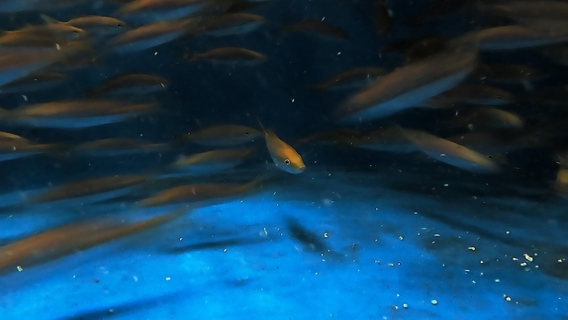
Summary
|
Earth’s human population is exponentially increasing, with estimates predicting
9.7 billion people by 2060. Consequently, the demand for natural resources to feed the rapidly growing population will create increasing pressure on marine and terrestrial ecosystems. Fisheries and aquaculture contribute ~20% (but up to 50% regionally) of animal protein and essential micronutrients annually, totaling an average of 20.2 kg of aquatic foods per capita in 20203. However, climate change is expected to exert impacts at multiple length and time scales on aquaculture facilities that may hinder sustainable operations, requiring the rapid development, dissemination, and adoption of sustainable and climate-resilient practices. This team aims to address aquaculture waste production and climate impacts through the following: Aim 1) assessing the impacts of fish diet on waste composition and ichthyocarbonate formation and Aim 2) evaluating the use of ichthyocarbonate produced by marine finfish as a nature-based solution for reduced CO2 emissions concrete and as a coating for marine concrete used in artificial reefs. |
Team
|
Amanda Oehlert (Marine Geosciences), Prannoy Suraneni (Civil and Architectural Engineering), John Stieglitz (Marine Biology and Ecology), Martin Grosell (Marine Biology and Ecology)
|




